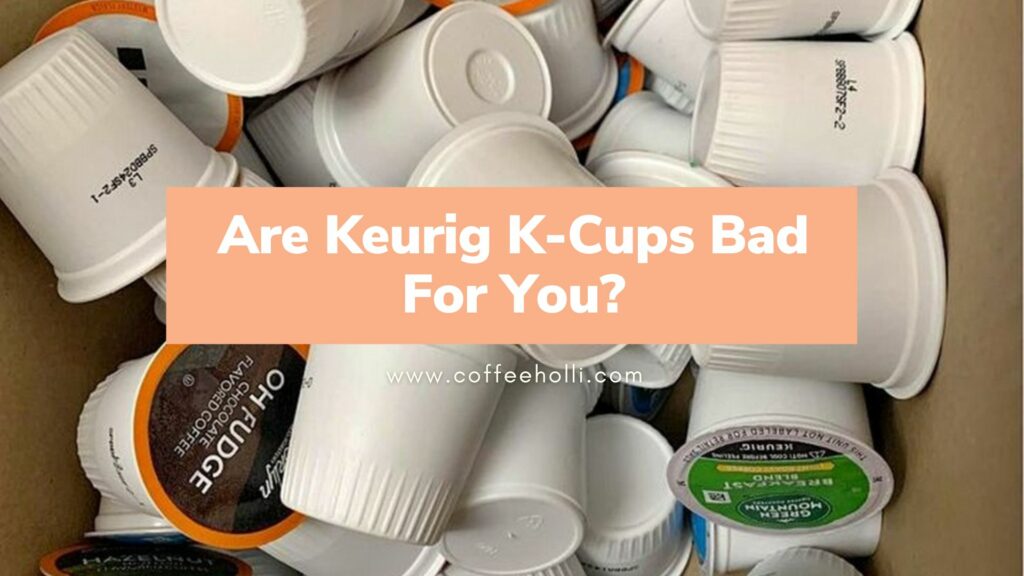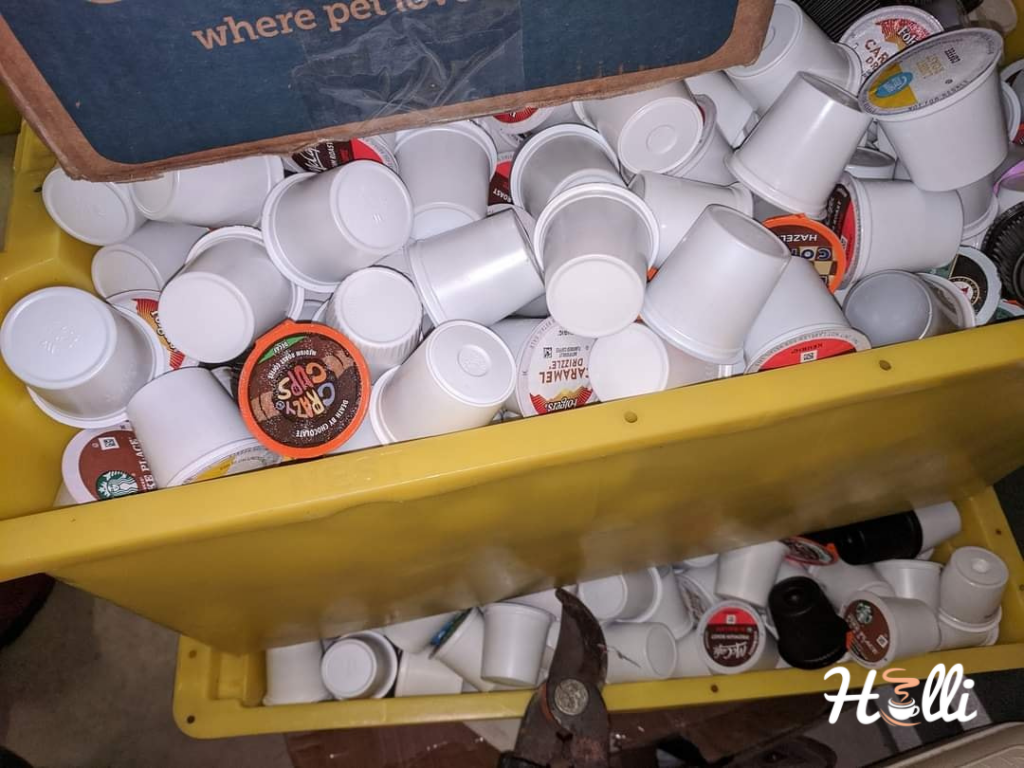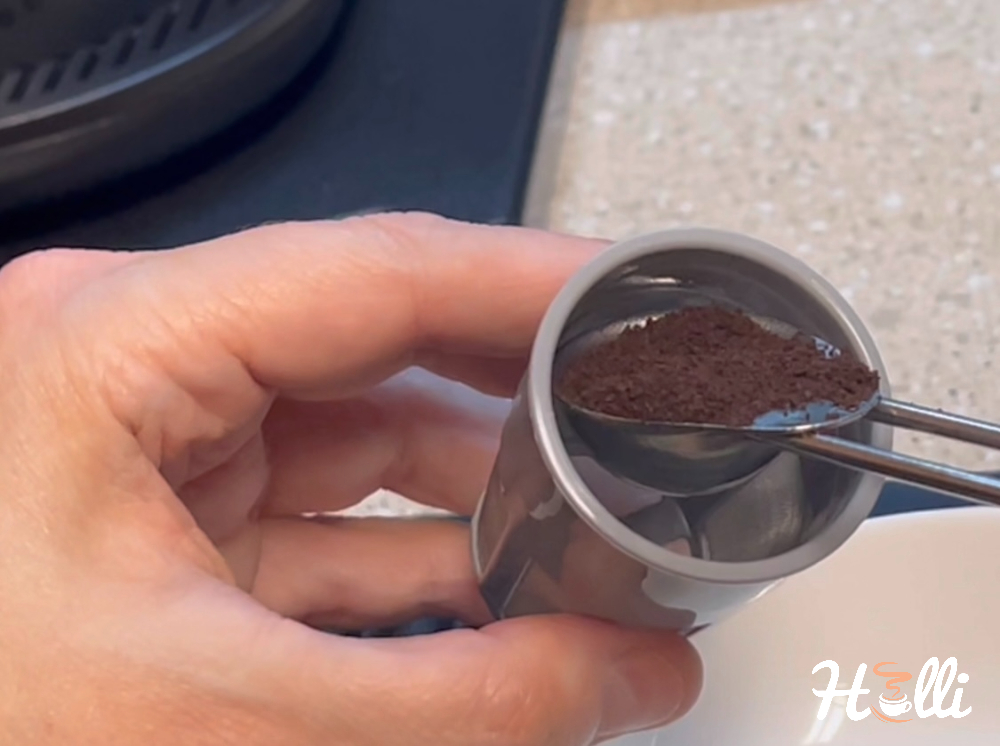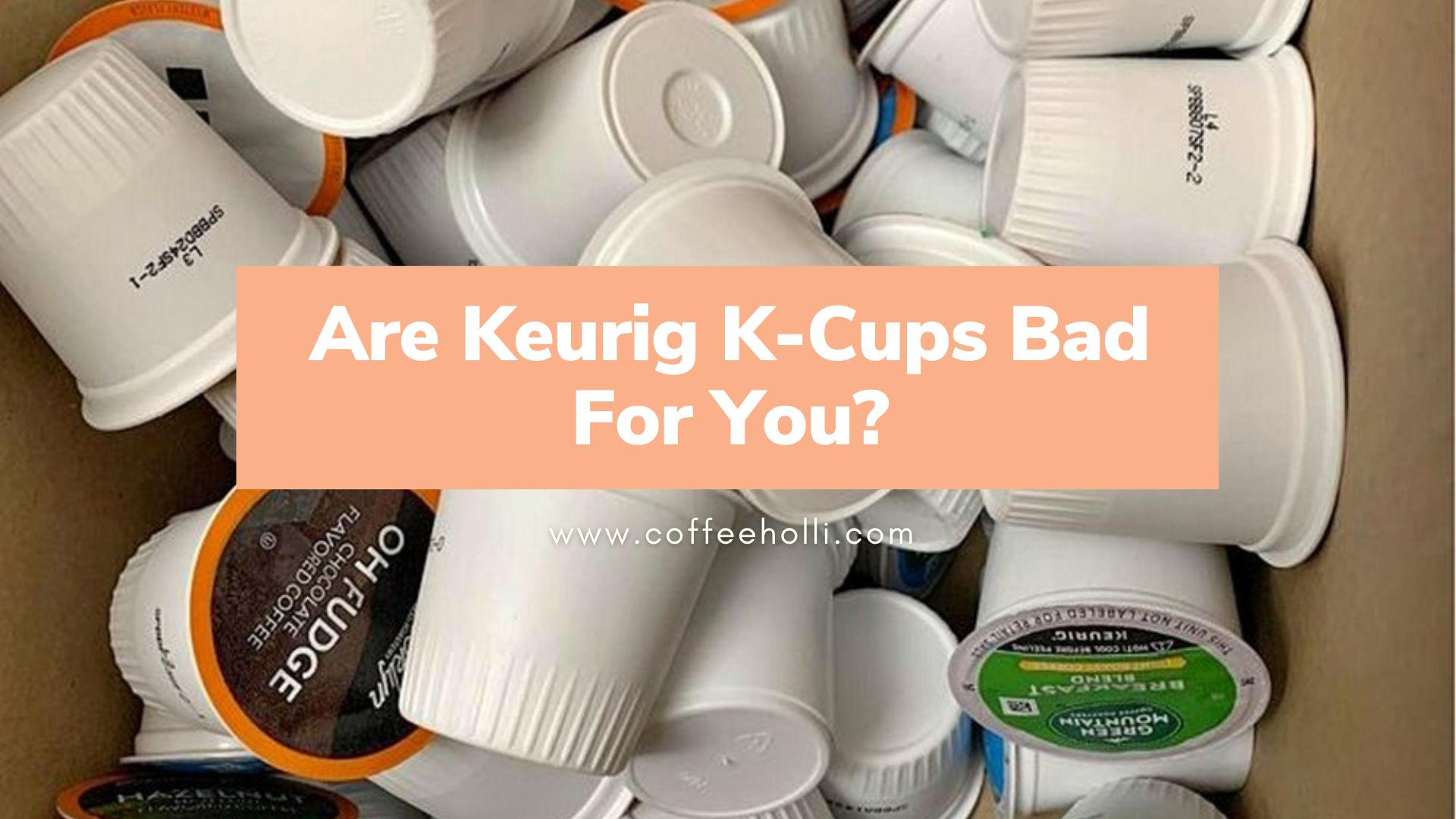I’ve often wondered about the health and environmental impacts of K-Cups. They’re made of plastic and can’t be good for you, right?
Well…
In this article, I explore the latest research and expert opinions to determine whether these convenient, single-serve pods are harmful to our health and the planet.
Ready? Let’s dive in!

Table of Contents
Are Keurig K-Cups Bad For You?
While knowledge of the specific plastic compounds used to produce K-cups has been kept as privileged information, it stands to reason that some form of BPA could leak into your coffee during brewing at high temperatures. However, it might not necessarily be cause for concern under regular brewing circumstances.
Concerns have been raised about the potential health risks related to Keurig K-Cups, mainly due to possible BPA exposure and carcinogens released from heated plastics.
Well:
As this study from the National Library of Medicine suggests, the use and manufacturing of plastics could pose a significant health risk and even trigger cancerous cells.
Thankfully:
It’s been suggested that these risks may be mitigated using metal or BPA-free plastic cups, ensuring good ventilation during brewing. Also, it helps to regularly clean your coffee maker and avoid overfilling K-Cups to prevent exposure to toxic fumes.
On the other hand:
Keurig states that their K-Cup pods are not harmful. The pods are made from FDA-approved food-grade materials and are free of BPA and phthalate. They also clarify that the temperature of the brewing water is below the melting and softening points of the pod materials, preventing any leaching of plastic particles into the beverage.
However, Furan, a known carcinogen, has been found in coffee pods, and it has the potential to cause liver damage. Without a clear indication of danger about Keurig’s K-Cups, it’s best to approach this variable with cautious curiosity.
Shifting gears to environmental impact:
Keurig’s K-Cups pose a significant challenge to recycling efforts. It’s a fact that widespread recycling of K-Cups isn’t yet a reality. If five K-Cups, five yogurt containers, and five margarine tubs are recycled, they’re downcycled to make park benches or lawn furniture instead of creating new food or beverage containers.

This downside of K-Cups is partly because many recycling centers are equipped to process only types 1 and 2 plastics. The result? K-Cups often end up being either landfilled or incinerated, contributing considerably to plastic pollution.
| Plastic Trash in the United States | Weight (pounds) |
|---|---|
| Annual total | 40 million tons |
| Per capita | 487 |
Unsurprisingly:
This Reddit user working for their university’s recycling department remarked that K-cups are the most common product they see in their waste collection program. This drives home how much hassle it can be to dispose of K-cups safely.
Sadly:
In the ocean, a heavy inflow of plastic waste is causing havoc, and the small K-Cups aren’t innocent here. As they float out to sea, these fragments become part of the burgeoning patches of plastic pollution.
Chemicals and Materials
In our quest to grasp the question, “Are Keurigs bad for you?” we must delve deeper into the Chemicals and Materials used in making Keurig K-cups.
You see:
The plastics used in K-cups pose considerable health issues. Even though Keurig insists their K-cups meet FDA guidelines and are BPA-free, the potential risks tied to the materials utilized are concerning.
Particularly:
When subjected to high temperatures during coffee brewing, these plastics could let off harmful chemicals. It’s not just about BPA; the plastic in K-cups often includes other bisphenols, such as BPS or BPF, which might be used as alternatives to BPA.
Unfortunately:
A study published in the National Library of Medicine shows these substances still have negative health impacts. They could increase the risk of diabetes at low levels and are associated with obesity at high levels.
Also, we can’t leave out the aluminum lids of K-cups and their potential health risks. Just as cooking acidic or spicy foods wrapped in aluminum foil at high temperatures increases health concerns, so does prolonged exposure to aluminum from K-cup lids.
Keep in mind:
Disturbingly, high levels of aluminum ingestion have been linked to health problems, notably neurological effects. The general effects fall under the umbrella of Aluminum poisoning.
Lastly, there is concern about the carcinogenic risks. Certain antibacterial additives in some plastics associated with health issues like hormone disruption and cancer could leach into the beverages. Each brew, each sip, and every hot Keurig coffee presents a potential risk.
Realistically:
While it’s true that sometimes plastics leach chemicals into the coffee, comprehensive information about the kind of plastic used in these K-cups is held as proprietary information by Keurig.
From texture:
It seems to be either polystyrene or polypropylene, but not polycarbonate, a common source of bisphenol A (BPA).
However, the natural occurrence of styrene – the compound from which polystyrene is derived – in coffee beans renders this less of a problem since styrene is promptly metabolized and excreted.
Overall:
The debate about convenient coffee K-cups and the associated chemical leaching risks continues. The truth remains – chemicals do leach out. Hence, it’s well-founded to remain cautious and informed about these matters.
Coffee Quality and Health
When discussing K-Cups, it’s crucial to consider the quality of the coffee they contain. Packed with pre-ground coffee, K-Cups are sealed in an airtight container, preserving freshness.
Yet, coffee connoisseurs often argue that coffee brewed from K-Cups lacks the depth and robustness of flavor found in freshly ground coffee.
As it stands:
There are rules to be followed regarding the storage of coffee beans that do not necessarily extend to prepacked coffee—as you rely on the manufacturer to ship you a decent brewing experience.
Traditional brewing methods, like the French press or drip, grant more control over the brewing process, often resulting in a richer taste.
Remember:
It’s not all about quick and hassle-free preparation. Your health may be at stake, too! K-cups can offer benefits similar to traditional coffee if taken in moderation. Coffee, especially when sourced properly, is known for its antioxidants that help prevent cell damage and reduce the risk of chronic diseases.
But, with K-Cups, the health benefits of coffee can be compromised by adding sugars, flavors, and preservatives to some pods. Opt for organic, unflavored, and unsweetened K-cups to enrich your daily caffeine intake with health benefits.
More so:
Awareness about the potential chemical release from the plastic used in K-cups is crucial. Yes, these plastics might be FDA-approved, but they might release certain chemicals when subjected to high temperatures during brewing. It won’t hurt to be a bit cautious.
Now:
Environmental considerations are essential when discussing K-cups. It’s no secret that single-use plastics contribute extensively to waste. Contrarily, traditional brewing methods, especially when partnered with sustainable packaging and reusable filters, tend to be eco-friendly.

While choosing between K-Cups and traditional brewing methods, consider the flavor profile and the potential health implications. After all, it’s your cup of coffee, and you can enjoy it without compromising your health or taste buds.
Industry and Expert Opinion
So, are Keurigs bad for you? It’s not a simple yes or no. The potential health risks tied to the materials used in K-Cups can’t be ignored. From the plastics that may release harmful chemicals during brewing to the aluminum lids linked to neurological effects. There’s cause for concern. Yet, it’s crucial to remember that Keurig doesn’t disclose the type of plastic used.
Notably:
This snippet published by McGill University states, “By its texture, it seems the plastic is either polystyrene or polypropylene.” The snippet subsequently says, “Traces of styrene, the compound from which polystyrene is made, may leach out. But styrene also occurs naturally in coffee beans, so all coffee will have some styrene.”
Also:
It concludes by mentioning, “If the K cup is made of polypropylene, there is no issue whatsoever. No compound of any consequence leaches out of this plastic.”
Lastly, the environmental impact of single-use plastics is another factor to consider. Traditional brewing methods with sustainable packaging and reusable filters might be a more eco-friendly choice.
The bottom line? As informed consumers, we should prioritize flavor and potential health implications when choosing our daily coffee.


